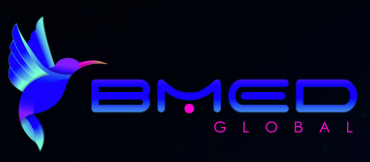Psychopathology And Psychedelics
Open Learning
Live
May 08, 2024
–
Jun 12, 2024
200
EUR
Online
12 Hours
Focus:
Psychedelics
Description
Psychopathology applied to psychedelics refers to the study of the effects of these substances on psychopathology, that is, on mental disorders and abnormal psychological processes. Although psychedelics have shown therapeutic potential in the treatment of various conditions, it is important to understand how they interact with psychopathological disorders and what considerations should be taken into account when using them in a clinical environment.
In this course you will learn about the most common mental disorders, their diagnostic criteria, epidemiology, nosology, descriptive phenomenology and treatment applied to research protocols with psychedelics.
Specific work will be done on the risks and benefits associated with treatment with psychotherapy assisted with psychedelics, to ensure a safe and effective practice. Reflection and debate on the etiology of these disorders will also be invited, and new cross-sectional classification criteria proposed from research with psychedelics will be presented, and that could explain their transdiagnostic usefulness.
OBJECTIVES
By participating in this course, students are expected to reach:
The basic criteria for classification and diagnosis of the main mental disorders based on the most used clinical guidelines of usual practice (DSM, CIE...)
To contextualize mental disorders within a historical, cultural and social perspective.
Basic descriptive psychopathology to understand the phenomenology of the different mental symptoms.
An initial approach to the different treatments indicated according to the available scientific evidence.
Alternative explanatory paradigms according to the knowledge derived from research with psychedelics.
Uses and risks of psychedelic assisted therapy in the different disorders.
How to perform a diagnostic screening to determine the presence of a mental disorder; diagnostic and evaluation tools.
In this course you will learn about the most common mental disorders, their diagnostic criteria, epidemiology, nosology, descriptive phenomenology and treatment applied to research protocols with psychedelics.
Specific work will be done on the risks and benefits associated with treatment with psychotherapy assisted with psychedelics, to ensure a safe and effective practice. Reflection and debate on the etiology of these disorders will also be invited, and new cross-sectional classification criteria proposed from research with psychedelics will be presented, and that could explain their transdiagnostic usefulness.
OBJECTIVES
By participating in this course, students are expected to reach:
The basic criteria for classification and diagnosis of the main mental disorders based on the most used clinical guidelines of usual practice (DSM, CIE...)
To contextualize mental disorders within a historical, cultural and social perspective.
Basic descriptive psychopathology to understand the phenomenology of the different mental symptoms.
An initial approach to the different treatments indicated according to the available scientific evidence.
Alternative explanatory paradigms according to the knowledge derived from research with psychedelics.
Uses and risks of psychedelic assisted therapy in the different disorders.
How to perform a diagnostic screening to determine the presence of a mental disorder; diagnostic and evaluation tools.
